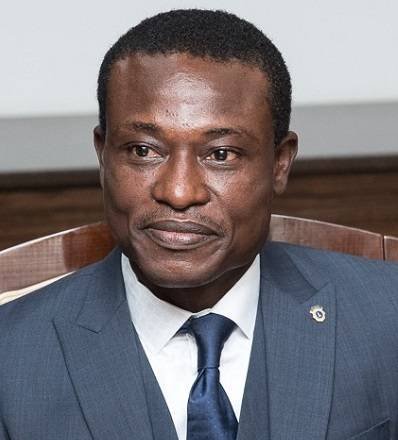The Special Prosecutor, Kissi Agyebeng, has emphasized that his office previously investigated a former President, John Mahama, which sets a precedent that does not exempt Former Finance Minister, Ken Ofori-Atta, from facing investigation after failing to appear in Ghana as scheduled.
Mr. Agyebeng made this assertion after declaring Ofori-Atta wanted once again, in connection with several cases, including the Strategic Mobilisation–GRA Contract, the termination of the ECG-BXC Contract, payments related to the National Cathedral, the ambulance procurement contract, and the utilization of the Tax Refund Account.
He noted that the Office of the Special Prosecutor (OSP) had investigated President Mahama while he was in opposition in respect of the Airbus Scandal, from which Mahama was exonerated. According to the Special Prosecutor, this same investigative standard will be applied to the former Finance Minister. He stressed that Mahama cooperated with the process, and therefore Ofori-Atta should not expect special treatment.
He questioned what was so unique about Ofori-Atta that warranted his request to be tried in absentia—a request Agyebeng described as one seeking to be treated “like a king.” He made it clear that the leniency and accommodation granted to Ofori-Atta had come to an end.
“Mind you, this office investigated a former President. The former President was served with the same kind of directive to appear before the OSP. We didn’t have to chase him around the world—how much more a former Minister? What is so special about Ofori-Atta that he thinks he is unique and should be treated like a king? As I said, we have indulgently accommodated him. It ends here, and it ends here today. We are not going to continue. We have granted him so long a rope—it’s tied him up,” he said.
Mr. Agyebeng further emphasized that suspects in criminal matters do not dictate how investigations should be conducted, including when and how they appear for questioning. He revealed that Ofori-Atta had requested to give his caution statement via online video conferencing, an option the OSP has rejected.
“A suspect in a criminal matter does not choose how the investigative authority should go about investigating him—when he wants to appear, how he wants to appear. We do not take caution statements online from foreign jurisdictions. And who says I even want to take a caution statement from him?” he stated.
He also revealed that there is a compelling and unimpeachable reason for insisting on Ofori-Atta’s physical presence in Ghana—one he said would be disclosed at the end of the investigation.
“We have always insisted from the onset that we want him here legally. But I will say this too: there is a far graver reason why we need him here. Since the investigation is ongoing and will be concluded soon, I will not disclose that reason now. But imagine this—if we take him to court, and he is convicted and sentenced to a number of days, months, or years in prison in absentia, what would we have done if we had not taken steps to bring him here?” he concluded.


